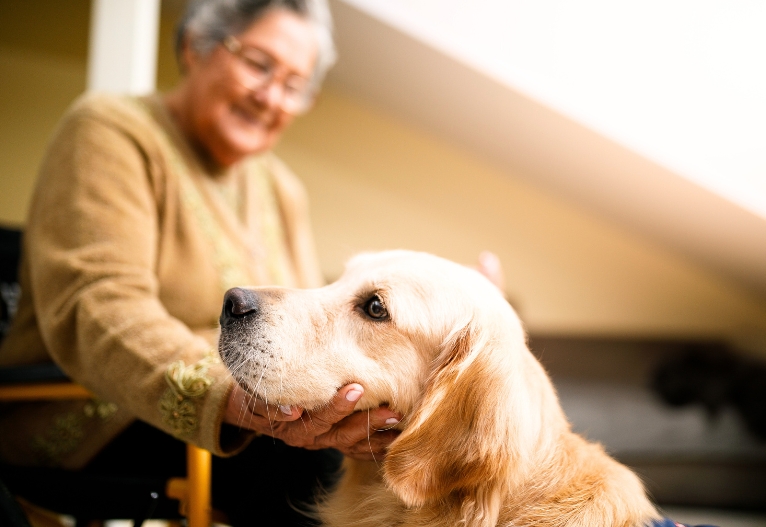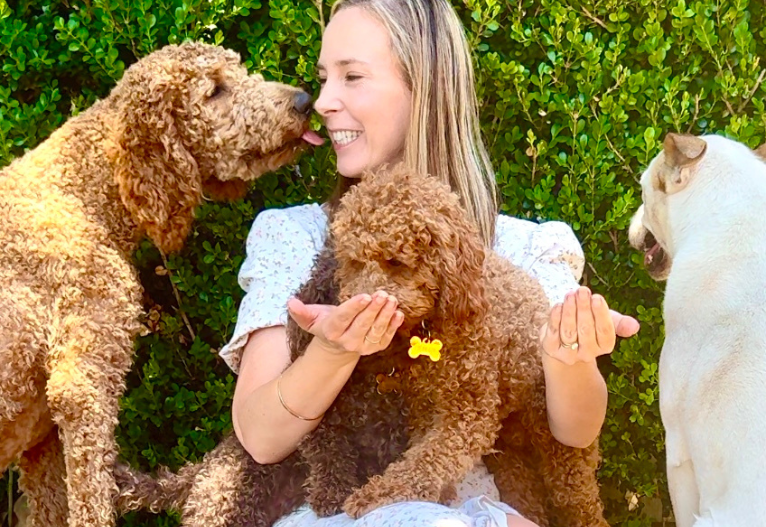Welcoming a puppy into your life is one of life’s most exciting moments – but it can also be quite overwhelming and lead people to wonder if puppy school is worth it.
Expert Dog Trainer and CEO of Manners ‘N’ More Companion Dog Training steps us through everything you need to know about puppy school. Read on for the lowdown on what’s involved and whether it’s right for your pooch.

Colleen O’Dea is a professional dog trainer, mentor, business coach, and CEO of Manners ‘n’ More Companion Dog Training in Perth, Western Australia. With over 16 years of experience in the industry, Colleen specialises in force-free training methods, helping dogs and their owners build strong, positive relationships. She is passionate about preventing problem behaviours, focusing on early puppy education to foster confidence and resilience in today’s urban world. Colleen is also highly skilled in canine proprioception, Bowen therapy, and specialised workshops, making her a sought-after expert in the field.

Puppy school: The foundations for a lifetime
Bringing a new puppy home is exciting and heartwarming. Those early weeks are filled with playful antics and exploration, but they’re also crucial for shaping who your dog will become. Much like vaccinating puppies against diseases, early socialisation and training act as a ‘behavioural vaccination’, laying the foundation for a confident and adaptable adult dog. And this is where puppy school plays a vital role.
But is puppy school worth it? Do the benefits outweigh the risks? Let’s break it down.

What is puppy school?
Puppy school is designed for young dogs, typically between 8 and 16 weeks old, a critical socialisation period when puppies are most receptive to new experiences. These structured classes focus on:
- Socialisation – Meeting other puppies and people in a controlled setting
- Basic training – Introducing essential cues like sit, stay, and recall
- Confidence building – Exposure to different surfaces, sounds, and being handled
- Owner education – Understanding canine body language and reinforcement techniques
A well-run puppy school goes beyond obedience; it equips both puppies and owners with essential life skills.

Potential risks of puppy school
Some owners hesitate to enrol in puppy school due to concerns such as:
- Disease exposure – Puppies are not yet fully vaccinated, but reputable schools take precautions, requiring initial vaccinations and holding classes in sanitised indoor spaces.
- Overwhelming experiences – If classes are chaotic or poorly run, puppies may develop fear rather than confidence. A well-structured program ensures positive experiences.
- Misinformation – Not all puppy classes are equal. Trainers using outdated, punishment-based methods can do more harm than good.
The benefits of puppy school
The benefits of a quality puppy school far outweigh the risks, particularly when classes are run by qualified, force-free trainers:
- Prevention of behaviour problems – Proper socialisation reduces the risk of fear, anxiety and reactivity later in life.
- Teaching essential skills – A dedicated school helps puppies develop appropriate social behaviours and learn how to engage calmly with people and other dogs. It also minimises unwanted habits by teaching you the best way to instruct your puppy – ‘No’ is old news.
- Strengthening the human-dog bond – Training builds trust and communication, fostering a strong and positive relationship.
- Setting the foundation for lifelong learning – A puppy who enjoys learning in class is more likely to excel in future training.
Much like a seatbelt in a car, puppy school provides an essential layer of protection against behavioural issues.

Puppy School: A Behavioural Vaccination
Just as we vaccinate against diseases, early socialisation and training protect against future behavioural struggles. Dogs who miss this window are more likely to develop anxiety, fear, and reactivity.
Think of puppy school as preventative care for behaviour—helping puppies navigate the world with confidence instead of fear. A well-structured program creates positive associations, shaping a puppy’s emotional resilience.
The cost of skipping puppy school
Let’s say you decide not to enrol in puppy school. Fast forward six months to three years, and you find yourself needing to engage a professional dog trainer because your fully developed dog is struggling with sociability or having big emotions about the world around them.
Unfortunately, this is an all-too-common phone call I receive. Now, the real cost comes into play. The financial cost of behavioural training is likely to run into the hundreds if not thousands of dollars, not to mention the time and effort you’ll need to dedicate to rehabilitation.
But there’s another cost: a shattered dream. The dream of having that “go-anywhere” dog, the one who fits seamlessly into your life, may now be replaced with a dog who finds their world more confined to the family home. No less loved, but with a life that has become more insular through no fault of their own.

So, is puppy school worth it?
Absolutely—when done right. It’s an investment in your puppy’s emotional and social development.
While raising a well-behaved puppy without formal classes is possible, quality puppy schools provide guidance and support that set owners and puppies up for long-term success. Choosing the right program—one that prioritises positive reinforcement, safe socialisation and owner education—is key.
Ultimately, puppy school is your puppy’s behavioural vaccination. A well-run puppy school doesn’t just teach your puppy, it also aids you on your journey towards having the puppy of your dreams.
So, what’s it worth to you to have that dream?
Top image: Canva
Thinking about starting puppy school? Let us know what your biggest questions are below.















-

-
-
Myfurrloves, NSW
- 09 Jul 2025
👍
1 Likes
-

-
-
BH516539, VIC
- 26 Jun 2025
👍
0 Likes
-

-
-
BH516822, SA
- 16 Jun 2025
👍
0 Likes
-

-
-
BH516518, VIC
- 31 May 2025
👍
0 Likes
-

-
-
BH516536, TAS
- 22 May 2025
👍
0 Likes
Post a commentTo post a review/comment please join us or login so we can allocate your points.